International
Borrell calls for a meeting of ministers in Brussels and not in Budapest in protest of Orbán’s tour
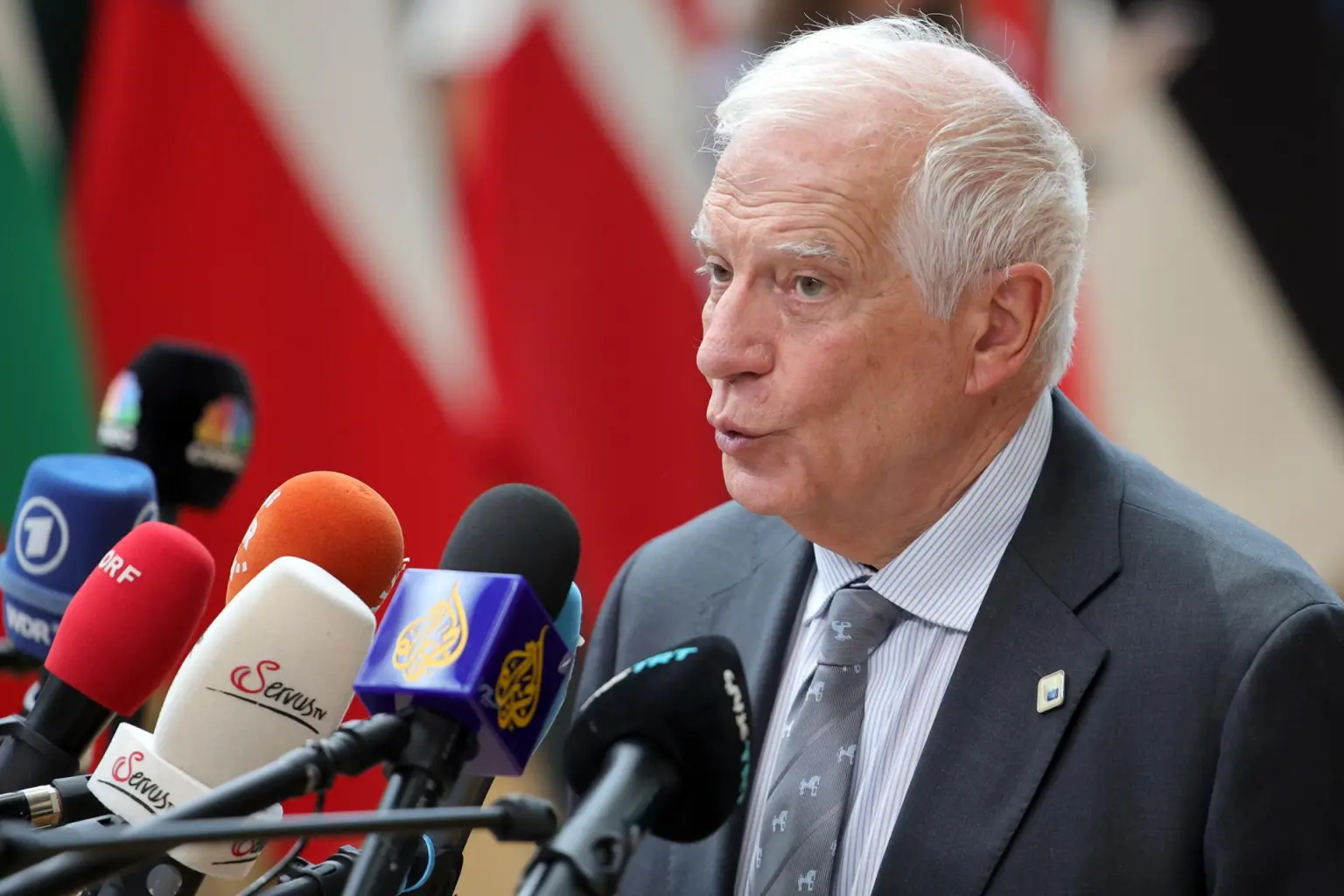
The head of European diplomacy, Josep Borrell, decided on Monday to convene the EU foreign and defense ministers in Brussels in Brussels at the end of August, instead of the one planned in Budapest, to show the EU’s rejection of the tour of the Hungarian Prime Minister, Viktor Orbán through Russia, China and the United States.
“We must send a signal, even if it is symbolic,” Borrell said at a press conference, about the boycott that some EU countries are willing to carry out against the rotating presidency of the European Union that Hungary holds this semester.
However, “I reject the word ‘boycott,” said the EU High Representative for Foreign Affairs, given that “the meeting will be held and Hungary will participate in it” will be held wherever it is held.
But he did consider that Orbán’s interviews with Russian President Vladimir Putin; Chinese President XI Jinping and former US President and re-election candidate Donald Trump should have “consequences,” so he considered it “appropriate” that the August meeting be held in Brussels and not in Budapest.
The EU foreign ministers, who today held their last meeting in the EU capital before the August break, discussed the possibility of meeting again in Ukraine at the end of August, instead of in Budapest, but Hungary opposed it, so the proposal did not go ahead, due to the lack of unity required.
The spokesman for the Hungarian Government, Zoltan Kovac, said that Hungary faces an “aggressive and warring hysteria for its ‘peace mission’” and called the discussion about whether to oppose the informal meeting in Budapest as “childish.”
Kovac pointed out that Hungary is “prepared” to hold the meeting in its country, “but it is also willing to attend if it is held in Brussels,” as he wrote in a message on his official account on social network X.
“There is no hysteria, we are just telling the truth,” said Borrell, who assured that “the only one who is in favor of the war is Putin, who wants the participation and surrender of Ukraine as preconditions for any conversation (of peace) and any ceasefire.”
The possibility of torpedoing the Hungarian presidency, however, does not convince the Twenty-seven equally, since the Spanish Foreign Minister, José Manuel Albares, said that “Spain does not support boycotts within the EU,” although he will see “meeting by meeting, according to the content of the agenda,” who sends to the meetings.
Also the Luxembourg Foreign Minister, Xavier Bettel, assured that it “does not make sense” to act in this way, that they have defended Poland, the Baltic countries, Sweden and Denmark.
Beyond this issue, Borrell defended the need for EU countries to support the reconstruction of Ukraine’s electricity grid, damaged by Russian bombings, given that “Putin wants to bring darkness and cold to Ukraine.”
In this sense, the European Investment Bank, whose president, the Spanish Nadia Calviño, attended the meeting with the ministers, today announced new loans worth 450 million euros for the reconstruction of hydroelectric plants and the electricity grid damaged by the Russian bombings.
Kovac also announced that Hungary and Slovakia conveyed their disagreement over Ukraine’s decision to partially ban the passage of Russian gas through their territory, which is affecting those EU countries.
International
Maduro signs Economic Emergency Decree to counter U.S. sanctions on Venezuela
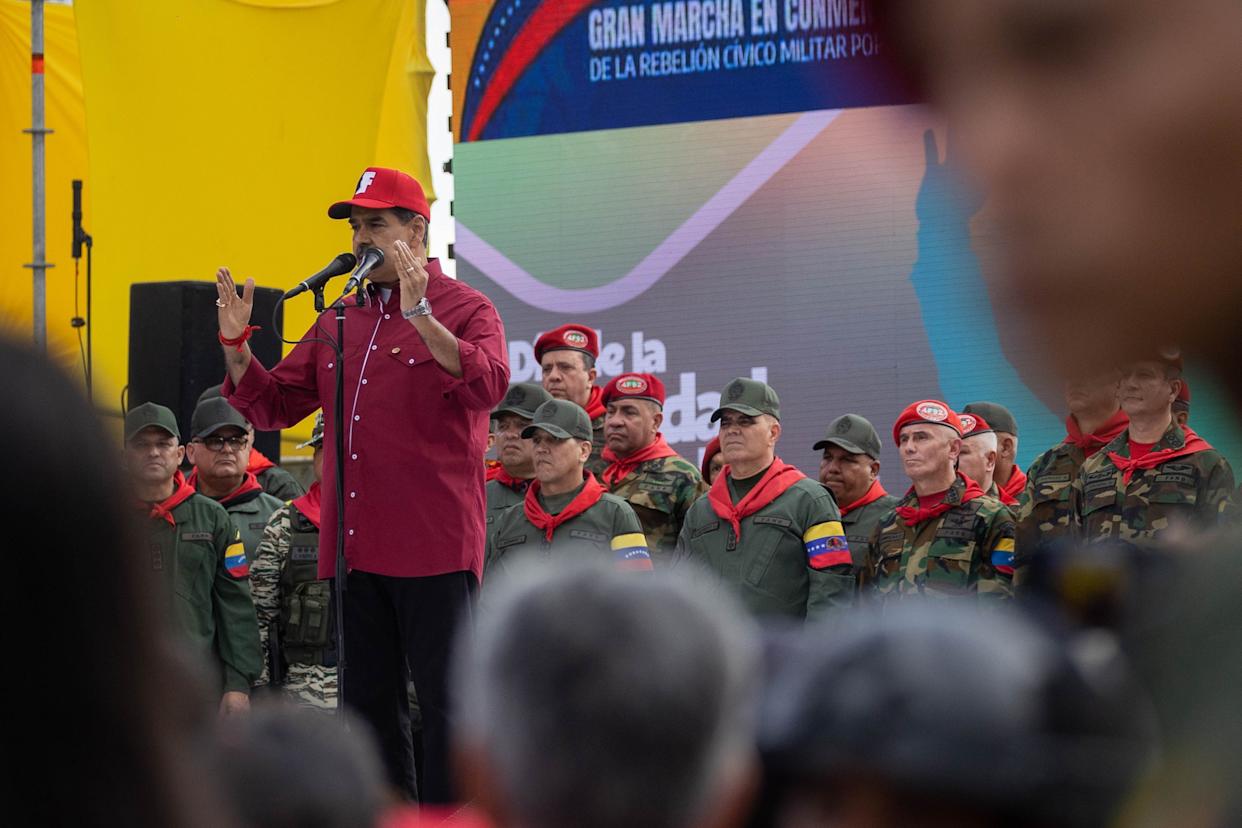
The National Assembly of Venezuela approved on Thursday an economic emergency decree presented this week by the government of President Nicolás Maduro, in response to sanctions and tariffs imposed by the United States.
In March, the government of Donald Trump began suspending licenses for foreign oil companies operating with the state-owned Venezuelan oil company PDVSA and imposed secondary tariffs on crude oil and gas exports. Maduro signed the decree on Tuesday, invoking constitutional articles that allow him to declare states of exception, temporarily restrict constitutional guarantees, or declare a state of emergency in the event of disasters, public calamities, or events that seriously threaten the country’s security.
The emergency decree “is to support national production,” said Delcy Rodríguez, Vice President and Minister of Hydrocarbons, during the document’s presentation.
“The affected oil markets, the fall in oil prices, have already surpassed 30% in our measurement, and this, as we say, is just the beginning,” Rodríguez stated, clarifying that Venezuela’s oil and gas production continues.
Rodríguez also mentioned that foreign oil companies are welcome to operate in Venezuela in accordance with local laws.
The United States has set a deadline of May 27 for oil companies operating in Venezuela, including Chevron (U.S.), Eni (Italy), and Repsol (Spain), to wind down their operations and exports.
The decree grants Maduro the authority to implement measures he deems necessary to ensure economic growth, contain inflation, offer special treatment to investors, suspend taxes, or apply exceptions to tax laws, and establish import substitution mechanisms, among other measures.
Maduro and his government have consistently rejected sanctions imposed by the United States and other countries, arguing that they are illegitimate measures constituting an “economic war” designed to cripple Venezuela.
The president and his allies have celebrated what they describe as the country’s resilience despite these measures, although they have historically attributed some economic difficulties and shortages to the sanctions.
This is not the first time Maduro has governed under an emergency decree. In 2016, he signed a similar decree, which was extended until 2021 under the argument of sanctions imposed on Venezuela by Washington.
With the Assembly’s approval, the decree must now be sent to the Constitutional Chamber of the Supreme Court of Justice.
Central America
U.S. Government says deported migrants should remain in El Salvador for life
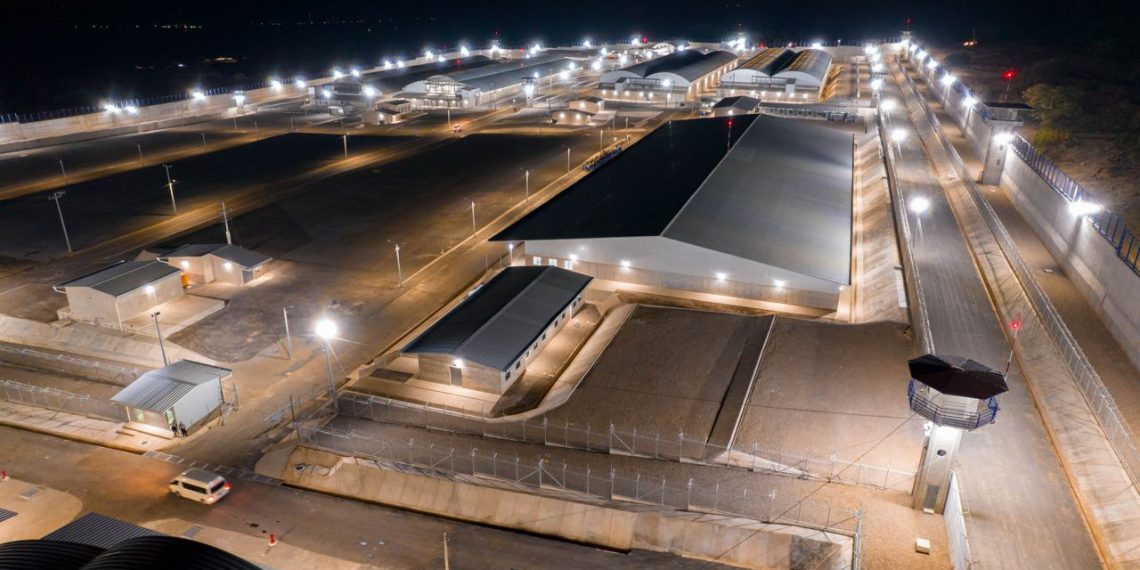
The United States government believes that the 238 migrants recently deported to El Salvador should remain in the country “for the rest of their lives.”
This was stated by Kristi Noem, the Secretary of Homeland Security, during a press conference. The following day, in a televised cabinet meeting, she reiterated the government’s commitment to continue its campaign to deport over 11 million people living in the U.S. without legal immigration status.
“We are confident that the people (sent to El Salvador) should be there, and they should stay there for the rest of their lives,” Noem told a group of reporters on Wednesday.
Despite the Trump administration’s defense of its decision to transfer the migrants to the Terrorism Confinement Center (Cecot), both testimonies from their families and reports from U.S. media outlets have shown that most of those currently detained there have no criminal backgrounds.
International
Italian biologist found dead in Colombia; investigation underway
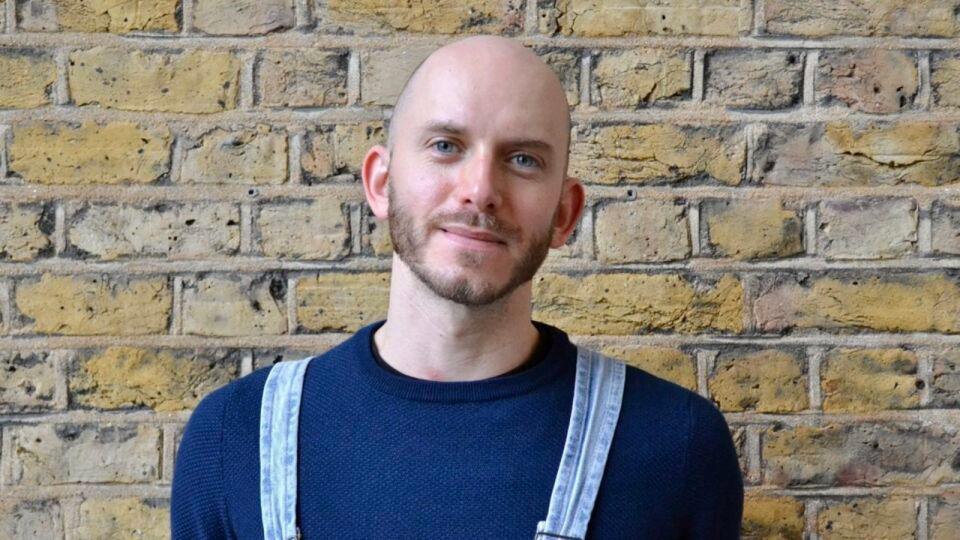
An Italian scientist has been found dead in Colombia, local authorities confirmed, after body parts were discovered along a trail in the coastal city of Santa Marta on Sunday.
Municipal police said that a bracelet found among the remains belonged to Alessandro Coatti, a biologist who had recently embarked on a journey across South America. Additional human remains were later discovered in two other locations within the city.
According to the police, Coatti had been staying in a local accommodation and was reportedly visiting the scenic Tayrona coastal area on April 5. His whereabouts since that date remain unknown, prompting an urgent investigation.
“There are currently no further details available; the case remains under investigation,” Colombia’s Attorney General’s Office said on Thursday. “It is still unclear what happened or where.”
-

 Internacionales5 days ago
Internacionales5 days agoErik Prince Backs Ecuador’s Daniel Noboa in Fight Against Crime and “Narcoterrorism”
-

 Central America5 days ago
Central America5 days agoGuatemala’s Legal Chief Shot Dead in Parking Lot: Investigation Underway
-

 Central America4 days ago
Central America4 days agoHonduras Hosts CELAC Summit Amid Regional Concern Over U.S. Deportations
-

 International3 days ago
International3 days agoRussia and US to Meet in Istanbul for Diplomatic Talks on April 10
-

 Central America3 days ago
Central America3 days agoAudit Exposes Major Breaches in Panama Canal Port Concession, $300 Million Owed to State
-

 International4 days ago
International4 days agoTeachers in Southern Mexico Bring Education to Stranded Migrant Children
-

 Central America4 days ago
Central America4 days agoMulino and Orsi Highlight Shared Vision After Panama Joins Mercosur as Associate State
-

 Central America4 days ago
Central America4 days agoTrump Administration Asks Supreme Court to Block Return of Deported Salvadoran
-

 Sports3 days ago
Sports3 days agoNeymar Returns to Santos Training After Month-Long Injury Layoff
-

 International1 day ago
International1 day agoMerengue concert turns to mourning as Jet Set collapse claims 136 lives
-
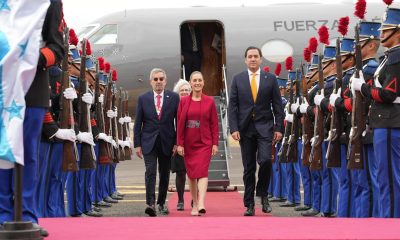
 Central America1 day ago
Central America1 day agoMexico’s president proposes regional economic summit at CELAC
-

 Central America9 hours ago
Central America9 hours agoNicaragua seeks ICJ intervention in Gaza conflict amid escalating violations
-
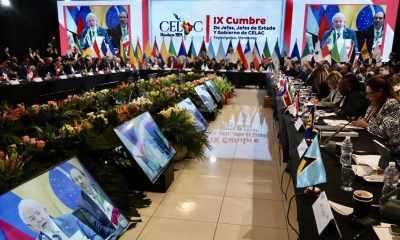
 Central America1 day ago
Central America1 day agoColombia to host fourth EU-CELAC Summit in November
-
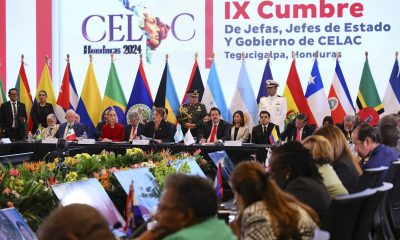
 Central America1 day ago
Central America1 day agoCELAC condemns unilateral sanctions in ‘Tegucigalpa Declaration’
-

 International3 days ago
International3 days agoMaduro Announces Economic Emergency Decree Amid Growing Tensions with the U.S.
-

 International3 days ago
International3 days agoTransgender Student Arrested at Florida Capitol for Using Women’s Restroom Under New State Law
-

 International3 days ago
International3 days agoScience Brings Back the Extinct Direwolf with Successful De-Extinction Project
-

 International9 hours ago
International9 hours agoItalian biologist found dead in Colombia; investigation underway
-

 Central America9 hours ago
Central America9 hours agoU.S. Government says deported migrants should remain in El Salvador for life
-

 International9 hours ago
International9 hours agoMaduro signs Economic Emergency Decree to counter U.S. sanctions on Venezuela















